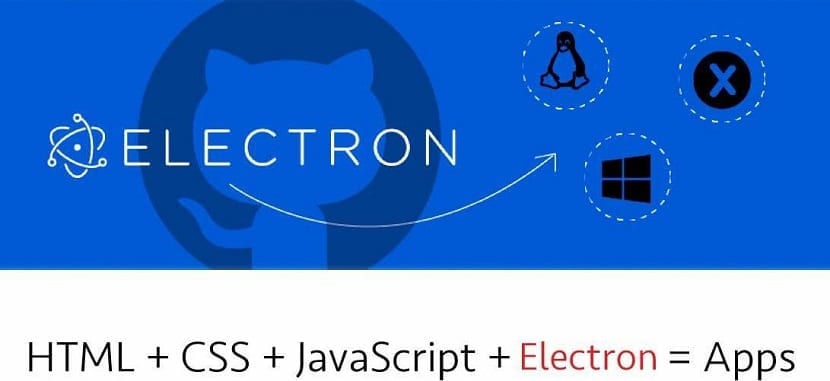
After several weeks of development and as part of the Electron release schedule, the launch of the new version of the Electron 6.0.0 platform has been announced, which provides a self-contained framework for developing cross-platform user applications, using Chromium, V8 and Node.js as a base.
Developers have access to Node.js modules as well as an advanced API to generate native dialogs, integrate applications, create context menus, integrate with the system to display notifications, manipulate windows, and interact with Chromium subsystems.
About Electron
For those who still do not know about Electron, you should know that this framework allows you to create any graphical application using browser technologies, whose logic is defined in JavaScript, HTML and CSS and the functionality can be extended through the companion system.
Unlike web-based applications, electron-based programs are delivered as self-contained executable files that are not linked to the browser.
In this case, the developer does not need to worry about porting the application to various platforms, Electron will provide the ability to build for all Chromium compatible systems. Electron also provides tools to organize automatic delivery and installation of updates (updates can be delivered from a separate server or directly from GitHub).
The directory of electron-based programs is represented by around 800 applications.
Of the programs created on the basis of the Electron platform, We can mention the Atom editor, the Nylas email client, the tools to work with GitKraken, the Wagon SQL query analysis and visualization system, the WordPress Desktop blogging system, the WebTorrent Desktop BitTorrent client and services such as Skype, Signal, Slack, Basecamp, Twitch, Ghost, Wire, Wrike, Visual Studio Code, and Discord.
Main changes in Electron 6.0.0
This new release is packed with updates, fixes, and new features. A significant change in the version number is associated with the update of the code base of the new version of Chromium 76 as well as to the Node.js 12.4 platform and the V8 7.6 JavaScript engine.
Besides that termination of support for 32-bit Linux systems that had been released months ago by the developers, still postponed for now and version 6.0 is also available in 32-bit versions
To simplify the development of new applications, a typical demo application set has been prepareds, including sample code to solve various problems.
Among the most notable changes to the new version of the API, we can find the following:
Asynchronous driver translation continued, which previously used callback calls, to a form based on the Promise mechanism.
Promise is provided in dozens of features, including ContentTracing categories. *, Cookies. *, Session. *, WebContents. * And webFrame. *.
As part of the work to improve component isolation at runtime, Three new controller apps have been added: Electron Helper (Renderer) .app for rendering processes, Electron Helper (GPU) .app for GPU interaction processes and Electron Helper (Plugin) .app for plugins.
Preparations have also started to limit the load on the process of rendering only Node modules using the N-API or Context Aware.
While the implementation of net.IncomingMessage is aligned with the behavior of Node.js.
If you want to know a little more about the changes and details of this new release of Electron 6.0.0 you can visit the official announcement found on the Electron blog. The link is this.
How to get the new version of Electron 6.0.0?
Finally if you want to get this new version of the platform, you can do it with the help of the npm package manager which is available for most current Linux distributions and of course with a terminal on your system.
The installation is done in the terminal and just type the following command to get version 6.0.0 of electron:
npm install electron@latest